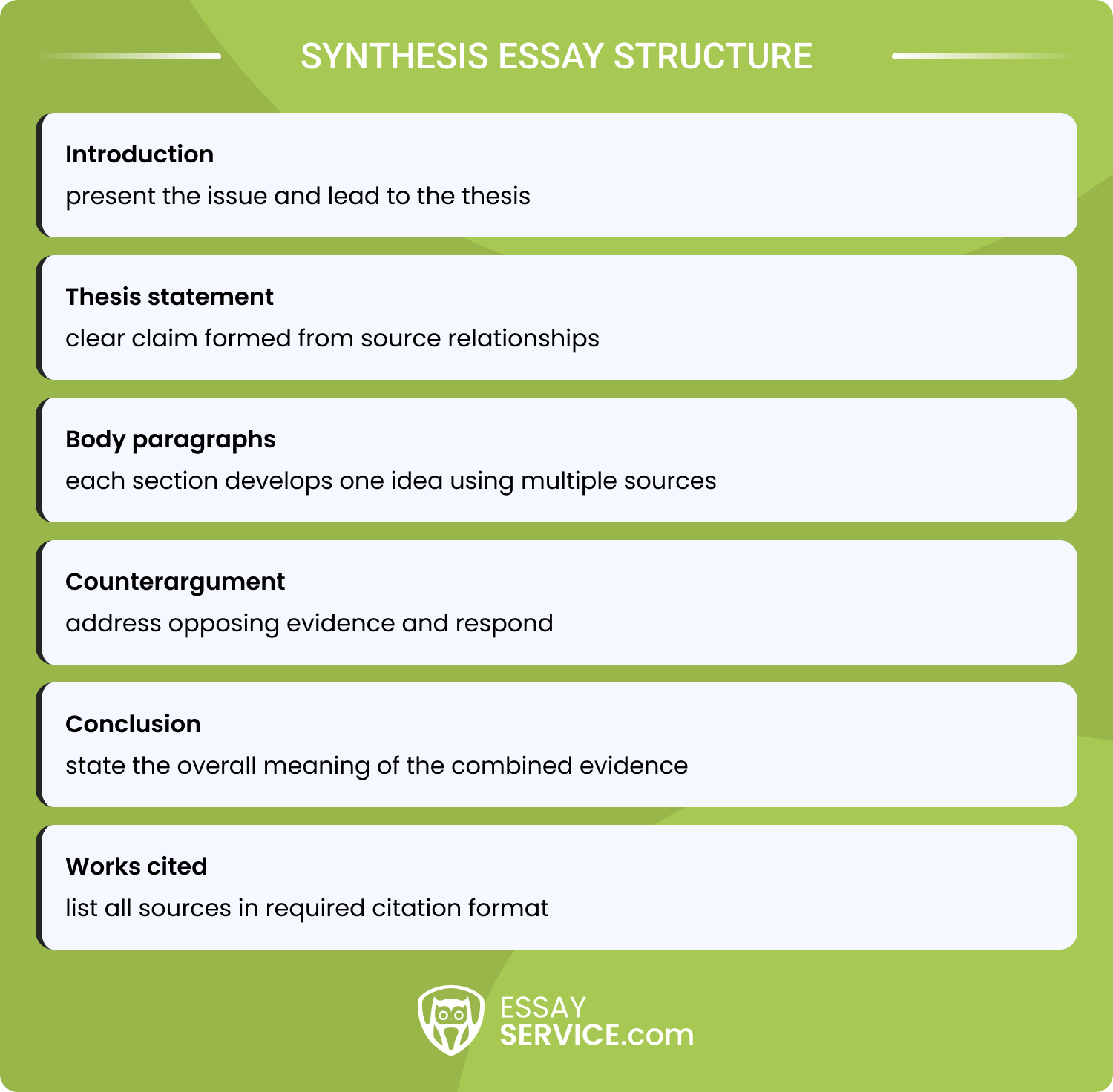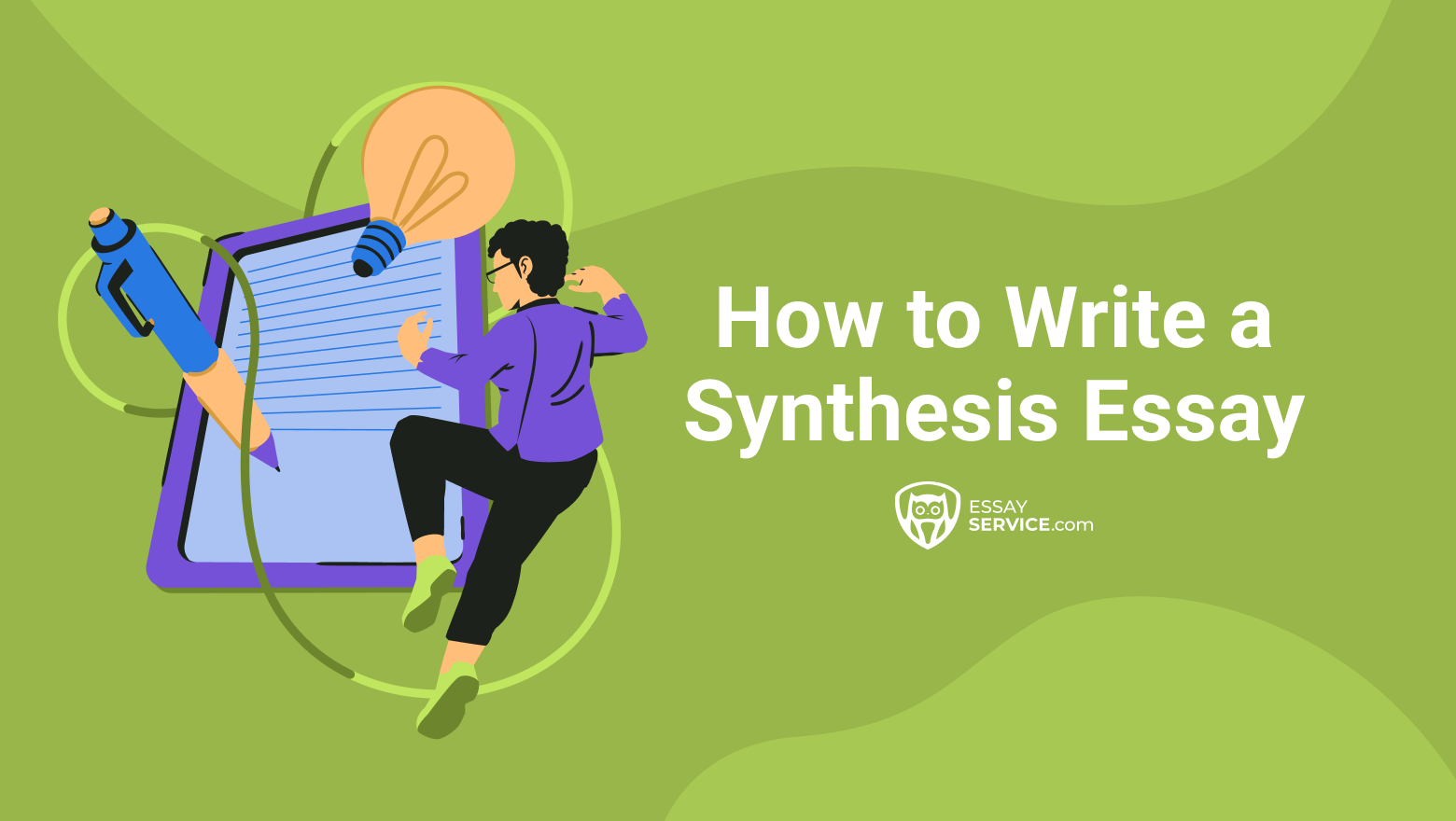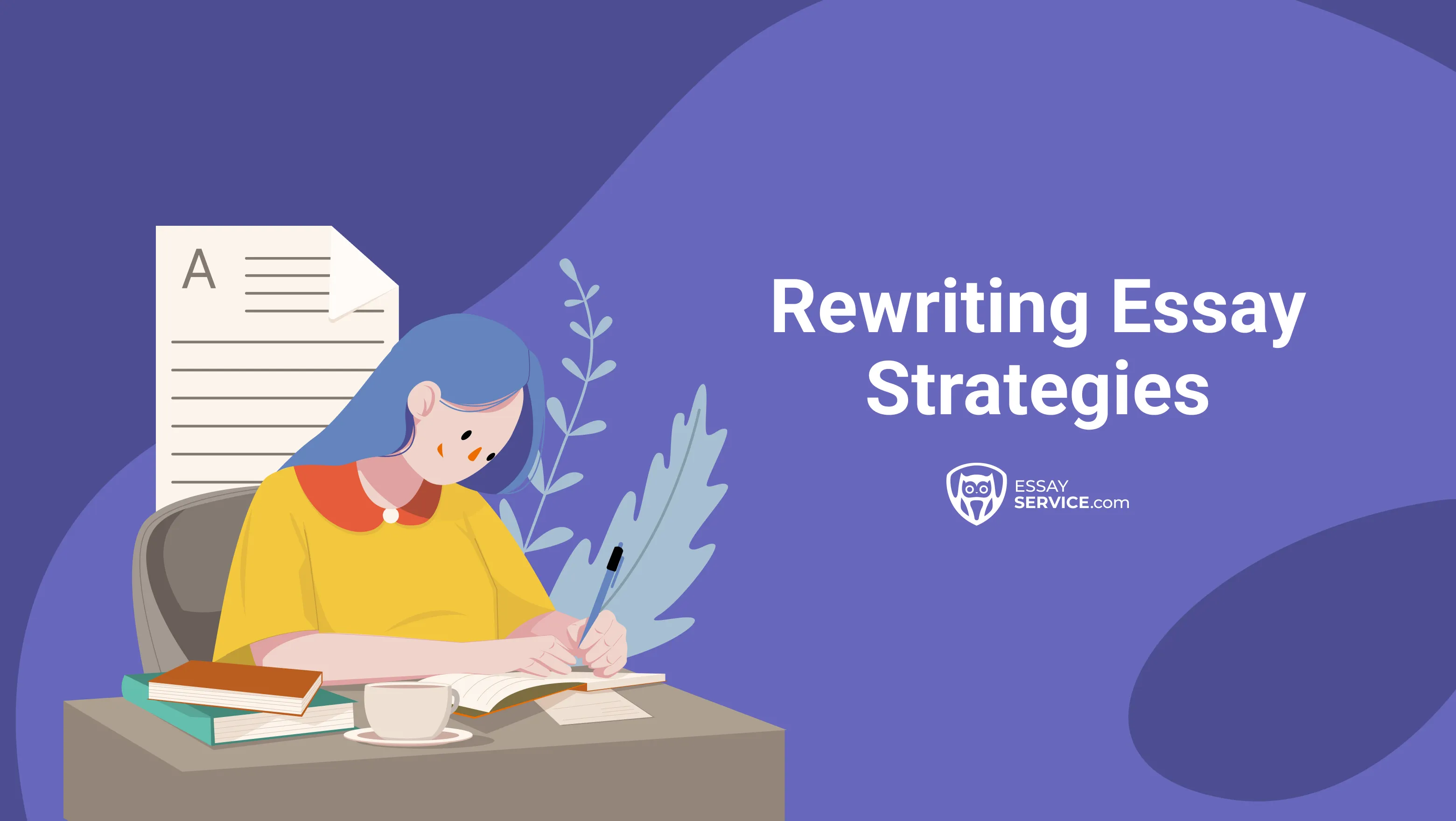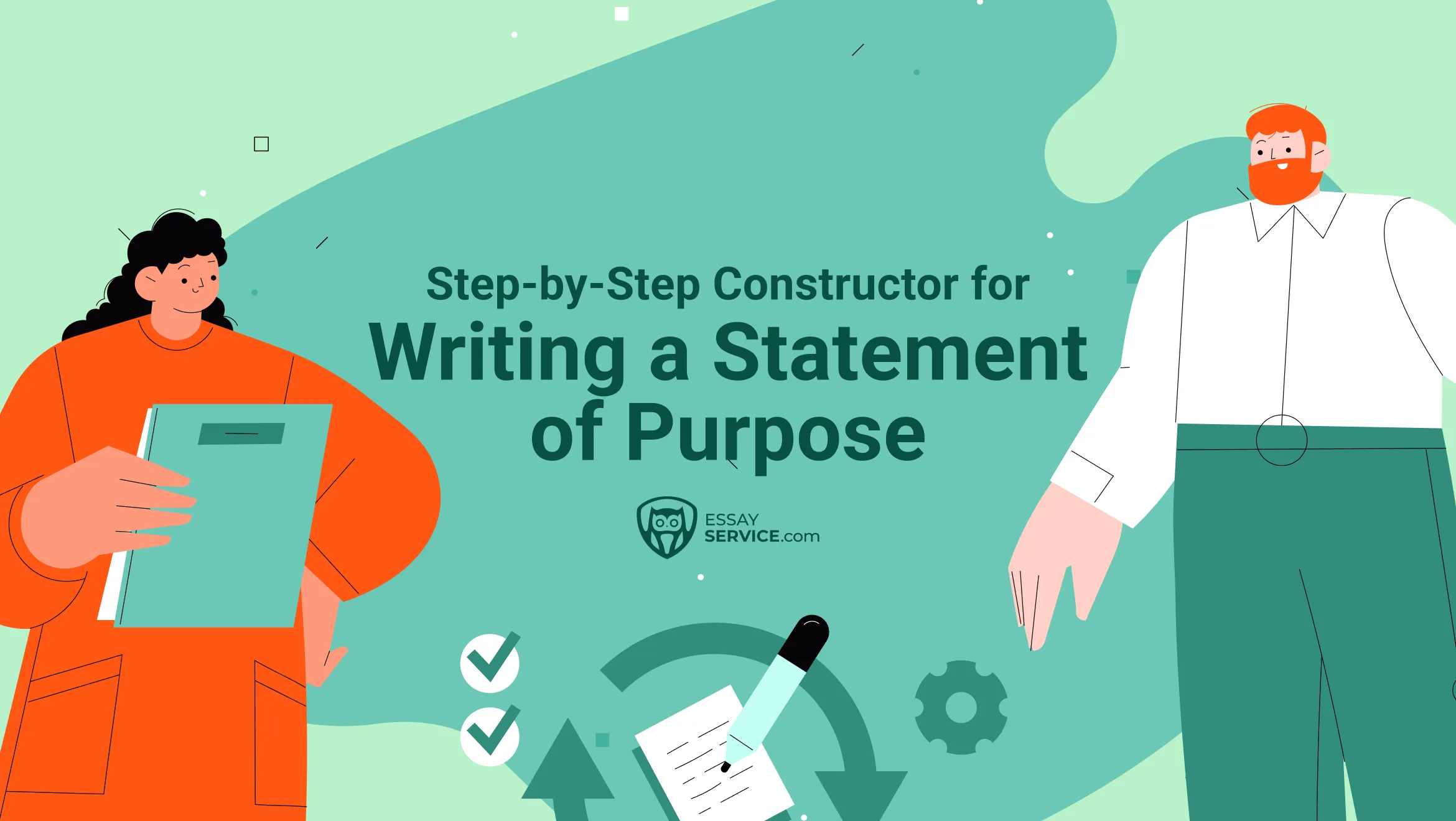A synthesis essay answers a prompt by constructing one argument from several sources rather than describing them one by one. The writer studies how the materials connect, then forms a thesis that takes a clear position grounded in those relationships. The process involves analyzing the prompt, locating sources that share ideas or conflict, and grouping evidence by topic.
This article explains how to write a synthesis essay step by step so you can interpret sources and organize evidence with purpose. Free PDF examples also demonstrate how the parts combine into a well-structured paper.
What Is a Synthesis Essay?
A synthesis essay is a paper that develops one argument by combining ideas and evidence from multiple sources. In synthesis essays, the texts are not summarized independently. Instead, the writer compares and connects them carefully, then interprets their interaction to support a thesis statement. Each paragraph integrates several sources around a single point, showing agreement or disagreement. Regardless of whether you're building the paper yourself or are getting help from an online essay writing service, the aim is to clarify what the sources together mean about the topic.
Synthesis Essay Length
Length always depends on the assignment, but there are patterns. Most instructors expect a synthesis essay to fall somewhere between 500 and 800 words. College essays, especially those with multiple sources, often go past 1,000 words. The word count is usually clearly stated in the synthesis essay requirements. Plan all the necessary parts (we'll cover the structure a bit later) in advance so each section has some wiggle room.
Different Types of Synthesis Essays
Synthesis essays do not come in one shape. They show up in a few forms, and each one asks for a slightly different approach:
- Explanatory synthesis essay – Here, you focus on presenting information clearly. You gather facts from sources, organize them, and help the reader understand the topic without trying to push an opinion.
- Argumentative synthesis essay – This one goes a step further. You use sources as evidence to support a claim you believe in. The essay works best when you choose strong evidence and build a case around it.
- Literature review synthesis essay – Common in research-heavy classes, this type sums up what studies say about a topic. It shows patterns, gaps, and the bigger picture without drifting off into personal opinions.
Synthesis Essay Structure
Understanding how to write a synthesis paper begins with viewing the essay as a unified argument created through cooperation between sources.

Thesis statement - Presents the central claim of the essay, takes a definite position on the topic, and guides how evidence is selected and used throughout the paper.
Example thesis: This essay argues that social media both spreads information faster and fuels misinformation, creating challenges for public awareness.
Introduction - Introduces the topic and context, frames the central issue, and leads logically to the thesis without listing sources.
Example opening: Social media determines how people see the world more than traditional news outlets ever did.
Body paragraphs - Each paragraph develops one main point, integrates evidence from multiple sources, compares agreement and disagreement, and explains how the sources support the claim.
Conclusion - States the overall meaning of the combined evidence, reinforces the thesis, and closes the argument without adding new information.
Example closing: Understanding how online platforms shape public opinion is the first step toward using them more responsibly.
Works cited / bibliography - Provides a complete list of all sources used, formatted according to the required citation style, so readers can trace and verify the information.
Synthesis Essay Outline
An outline for a synthesis essay does not follow one fixed pattern. Sometimes ideas cluster naturally into themes, or each author builds a separate framework. You can organize the paper by topic, by source, or blend both. Look through the models below, then compare them with the PDF examples to decide which layout actually supports your argument.
Synthesis Essay Outline by Topic
Structuring your synthesis essay by topic places the conversation inside each paragraph. Different authors appear together, and the reader evaluates their relationship immediately.
I. Introduction
- Context of the issue
- Thesis statement
II. Topic 1
- Claim about the topic
- Evidence from Source A
- Evidence from Source B
- Explanation of relationship
III. Topic 2
- Claim about the topic
- Supporting or conflicting evidence
- Interpretation
IV. Topic 3
- Claim about the topic
- Integrated evidence
- Analysis
V. Conclusion
- Combined meaning of topics
- Restated thesis
Synthesis Essay Outline by Source
Creating a synthesis essay structure by source gives each author a focused section while still comparing ideas within it. This works when the sources represent clearly different approaches. Take a look at the synthesis essay template below:
I. Introduction
- Context
- Thesis
II. Source A
- Main idea
- Comparison with other sources
- Analysis
III. Source B
- Main idea
- Agreement or disagreement
- Analysis
IV. Source C
- Main idea
- Connection to thesis
V. Conclusion
- Final interpretation
Mixed Structure
Writing synthesis essay with a mixed structure combines both organizing logics. Begin with a short section centered on the most influential source to define the debate and key terms. After that, shift into topic-based paragraphs that integrate the remaining sources around specific questions. Return to the main source when needed to confirm or challenge claims.
Use this method when one text frames the discussion while research studies supply detailed evidence. It also works when a policy document establishes criteria and later articles evaluate outcomes. The structure prevents repetition and keeps comparison active across the paper.
How to Write a Good Synthesis Essay?
Ever tried to piece a puzzle without a reference picture? The same feeling is sometimes brought on by writing a synthesis essay. But the good thing is that you have our help! We'll teach you the steps to connect the dots so you can then form a clear picture. And if you need to rewrite the essay, EssayService is there with experts who know how to polish any essay until it shines.
.webp)
Choose a Topic
When you're discussing topic, pick a question that allows different viewpoints. A synthesis essay needs disagreement so sources can be compared. Narrow the topic until several authors discuss the same specific issue directly. You are choosing a debate to argue about, not a general subject to explain. A focused topic makes it possible to support a claim using clear evidence.
Analyze Sources Carefully
Search library databases, scholarly journals, and official research organizations. Avoid opinion blogs and unverified posts. Read each source twice. First, capture its main claim and supporting evidence. Then compare it with others, marking agreement, conflict, and missing explanation. Highlight data and quotations only after you understand how the author uses them. Analysis means asking how each source changes the argument, not what it merely says.
Pro tip: Color-code your sources while reading: assign each source a color and mark matching ideas across texts. Patterns appear faster, and gaps in coverage become obvious before writing.
Write the Thesis Statement
When you're writing a synthesis essay, a strong thesis statement comes from patterns you see in the evidence. Identify where sources agree and where they conflict, and decide what those relationships show about the question. Then, write a single sentence that sums up the main claim of your paper. The position must be arguable and supported by multiple sources. If readers could reasonably disagree, the thesis is strong enough.
Weak thesis: Social media affects people in many ways.
Strong thesis: Social media changes how information travels, mixing accurate reporting with false narratives and influencing what society perceives as true.
Create an Outline
Begin with a plan before drafting sentences. Organize material by topic so each paragraph combines sources addressing the same issue. Listing authors one by one turns the essay into a summary. Group evidence under shared claims, then place opposing views where they naturally appear. A clear outline includes:
- An introduction that states your thesis
- Body paragraphs
- Evidence matched with each point
- A conclusion that ties everything together
Pro tip: Build a comparison table: list sources in columns and main ideas in rows. Filling the grid helps you see agreement and conflict instantly, which makes paragraph planning quicker.
Write and Revise
Draft with the outline beside you. Blend sources into your sentences instead of stacking quotations. After the draft, read for logic first, then for wording. Each paragraph must advance the thesis and connect smoothly to the next. Remove repetition, correct citations, and verify that the conclusion explains the overall meaning of the evidence rather than echoing earlier lines.
Write the Bibliography Section
The bibliography, or your source list, needs to be very precise. You can't afford to get this part wrong. Each source must include all the details (the author, title, and publication date). Double-check the formatting rules: MLA, APA... whatever it is, follow it to the letter. Ultimately, the most important part of how to reference your essay is consistency across the entire paper.

I chose a topic that allows room for multiple perspectives.
I carefully read the prompt and noted specific instructions.
I gathered credible sources that support my ideas.
I grouped similar points together.
I wrote a thesis that clearly states my argument.
I created an outline that maps out every section.
I wrote the first draft.
I ensured each paragraph focused on one idea.
I checked that each idea connects to the thesis.
I revised the draft with fresh eyes.
I checked citations and formatted the bibliography.
Synthesis Essay Format
Here’s a simple synthesis paper format:
Synthesis Essay Examples
Below you will find a free synthesis essay example PDF collection showing how sources are combined into one argument. Each sample demonstrates structure, integrated evidence, and clear reasoning.
Tips on How to Write a Synthesis Paper
A strong synthesis paper depends on reasoning, not the number of sources. The goal is to show how ideas relate and what they collectively prove.
- Avoid summary - Do not move through sources one by one. Combine at least two in each paragraph and show how their ideas interact.
- Use counterarguments - Present credible opposing evidence, then explain precisely why your position still holds under that pressure.
- Focus on analysis - After each citation, interpret its meaning and state how it supports or complicates your claim.
- Draft and revise - Build a structured outline first. During revision, tighten reasoning and remove weak or repetitive evidence.
- Track source balance - Check that multiple sources appear across the paper. If one dominates, your synthesis becomes partial.
- Test paragraph logic - At the end of each section, ask what new understanding the comparison created. If none appears, deepen the connection.
Pro tip: Write topic sentences before paragraphs: draft one clear claim for each section first. If two claims sound identical, merge them; if a claim lacks support, you catch the problem early.
Running out of Time?
Give us your instructions, and we’ll help you meet your deadlines with a polished draft.
Synthesis Essay vs. Argumentative Essay: What's the Difference?
Both a synthesis and an argumentative essay defend a claim, but they are structured differently. An argumentative essay starts with your position and brings in evidence to support it. A synthesis essay requires you to combine multiple sources and form a position from their relationships. In short, argumentative writing defends your claim, while synthesis writing interprets a relationship between texts.
Summing Up
A synthesis essay pulls threads from different sources so they can create something coherent. It asks for connections: between sources, between ideas, and ultimately between these two and the argument being made. A synthesis essay done right feels like a conversation on paper, where every word has a place and purpose.
Frequently Asked Questions
How Many Paragraphs Should a Synthesis Essay Be?
There is no fixed number. Most follow five to seven paragraphs: an introduction, several body sections organized by idea, and a conclusion.
What Is the Difference Between a Synthesis Essay and an Argumentative Essay?
An argumentative essay supports a pre-chosen claim using evidence. A synthesis essay develops the claim by comparing and combining several sources, so the argument grows out of the material.
How to Write a Thesis for a Synthesis Essay?
Read all sources first, identify agreement and conflict, then state what those relationships prove about the topic in one clear, arguable sentence.
How Many Sources Are Needed for a Synthesis Essay?
Usually at least three sources are required, though academic assignments often ask for four to six to allow meaningful comparison.
What Are Common Mistakes in Synthesis Essays?
Listing summaries, quoting without analysis, ignoring conflicting evidence, and failing to connect paragraphs back to the thesis.
How to Begin a Synthesis Essay?
Introduce the issue, explain the central question, and lead directly to a thesis formed from the sources rather than announcing each text individually.

Jennifer is a student currently pursuing a Journalism major. She oversees the EssayService blog team and uses her journalism skills to ensure all blog posts are accurate, trustworthy, and engaging.
- Synthesis Essay Instructions and Handouts. (n.d.). Retrieved February 18, 2026, from https://dcdc.coe.hawaii.edu/ltec/612/wp-content/uploads/2015/02/Synthesis-Essay-Instructions-and-Worksheets.pdf
- SYNTHESIS ESSAYS STEPS FOR WRITING A SYNTHESIS ESSAY. (n.d.). https://www.unlv.edu/sites/default/files/media/document/2023-12/Synthesis-Essays.pdf
New posts to your inbox
Your submission has been received!




